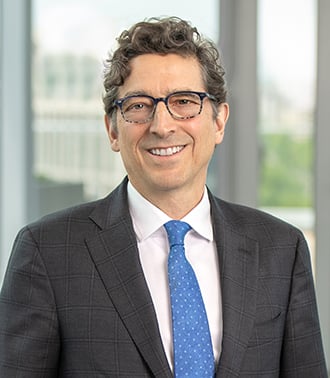ABA Panels Reflect on the Pitfalls and Pendulums in Cross-Border and Corruption Cases
The ABA’s White Collar Crime Conference offered three panels with insights on various pitfalls and evolving trends in cross-border and Foreign Corrupt Practices Act (FCPA) cases.
On Wednesday, we were fortunate to have Swiss attorney Saverio Lembo—who may have been the only European lawyer to navigate travel restrictions on two continents—moderate a panel on cross-border investigations with Toronto lawyer Lincoln Caylor, Professor Lucian Dervan, and Principal Assistant Chief of the DOJ FCPA Unit Lorinda Laryea. Laryea spoke to an attentive audience of defense lawyers about several key points:
- Take the Corporate Enforcement Policy (CEP) seriously: If a company voluntarily self-discloses, it earns a presumption of a declination, with some carveouts. If a company decides not to self-disclose, it runs the risk of DOJ discovering the misconduct and the company losing its chance for declination. DOJ has many proactive tools to uncover, investigate, and prosecute wrongdoing, including a growing number of whistleblowers eager to enjoy the financial rewards offered by the government.
- Take some comfort in DOJ’s no-piling-on policy: According to Laryea, DOJ will apportion credit among various domestic and international enforcement authorities in a fair way designed to avoid imposing multiple financial burdens on a company for the same conduct.
- Cooperation among enforcers is increasing: The speed and efficiency with which different countries now cooperate is faster than ever, with informal calls and videoconferences between these enforcers resulting in shared leads, evidence-gathering shortcuts, and more focused mutual legal assistance treaty processes. The pandemic has shown these government lawyers from around the globe how they can communicate across computer screens and telephones without getting bogged down in letters rogatory and long-delayed actions and reactions.
During another Wednesday panel on International Extradition and Mutual Assistance, Deputy Assistant Attorney General for the DOJ Criminal Division and Counselor for International Affairs Bruce Swartz also noted the increased level of international communication and speedy coordination among enforcers. He described how massive amounts of electronic data have become a key part of “transnational evidence,” leading DOJ to create special intake units to handle thousands of requests from around the world. He cited the power of the Cloud Act in allowing prosecutors to access data held by service providers. He also extolled the Office of International Affairs as unique among its peers for its corps of attorneys dedicated to international issues. With an energized Fraud Section and international partners “robustly” joining the enforcement effort, he warned future defendants that they likely will be hearing from DOJ and its foreign counterparts. He also touched on the subject of extraditions, their complexity, the length of time involved in the process, DOJ’s tenacity in seeking them, and the series of multilateral conventions that constantly update and add crimes to the mix of extraditable offenses.
Wednesday’s cross-border revelations were followed by Thursday’s ever-popular annual panel on recent developments in the FCPA. David Last, Chief of the DOJ FCPA unit, and Charles Cain, head of the SEC FCPA unit, headlined. The panel also included two recent former chiefs of the DOJ FCPA unit, Chris Cestaro and moderator Dan Kahn, along with former Southern District of California US Attorney Karen Hewitt. Kahn went off script in order to get Last and Cain’s reaction to the big news of Deputy Attorney General Lisa Monaco’s speech that morning. Last affirmed that prosecutions of individuals and companies in corporate cases are a high priority and noted that Monaco’s pronouncements were “the start and not the end to efforts to combat corporate crime.” Last added that Monaco promised a “surge in resources”—exemplified by an FBI squad being embedded full-time in the Fraud Section—that “will pay dividends” in complex cases to come. Cain, on the other hand, said that he is not aware of any similar surge in SEC resources anytime soon but insisted that SEC, with its current resources, will continue bringing “impactful cases.”
Questioned about the perception of a slowdown in individual and corporate criminal cases, Last rejected the premise, stating: “We are busier than ever.” He noted that much of what the FCPA unit is doing is covert; cases—fueled by whistleblowers, cooperators, and escalating referrals from foreign law enforcement—are being built behind the scenes before DOJ goes public with subpoenas, search warrants, and arrests. Cain agreed that, while the pandemic slowed down collection of overseas evidence, the pace of gathering documents and corralling witnesses has quickened as global partners have emerged from quarantine. Both Last and Cain noted that published case, settlement, or dollar metrics can be deceiving, as FCPA cases can take years to unfold. In the end, they predicted this year’s metrics would exceed last year’s: we know from settlement agreements that Brazil, the United Kingdom, Switzerland, and the Netherlands have been four active jurisdictions, and new foreign authorities’ cooperation with DOJ and the SEC will become public in the “near future,” according to Last. With the Biden Administration’s recent focus on Latin America and its proximity to the United States, expect more Latin American corruption cases to be coming down the pike.
If you have questions about corruption or cross-border issues, reach out to the authors or any of their colleagues in the White Collar Defense & Investigations group.
© Arnold & Porter Kaye Scholer LLP 2021 All Rights Reserved. This blog post is intended to be a general summary of the law and does not constitute legal advice. You should consult with counsel to determine applicable legal requirements in a specific fact situation.


